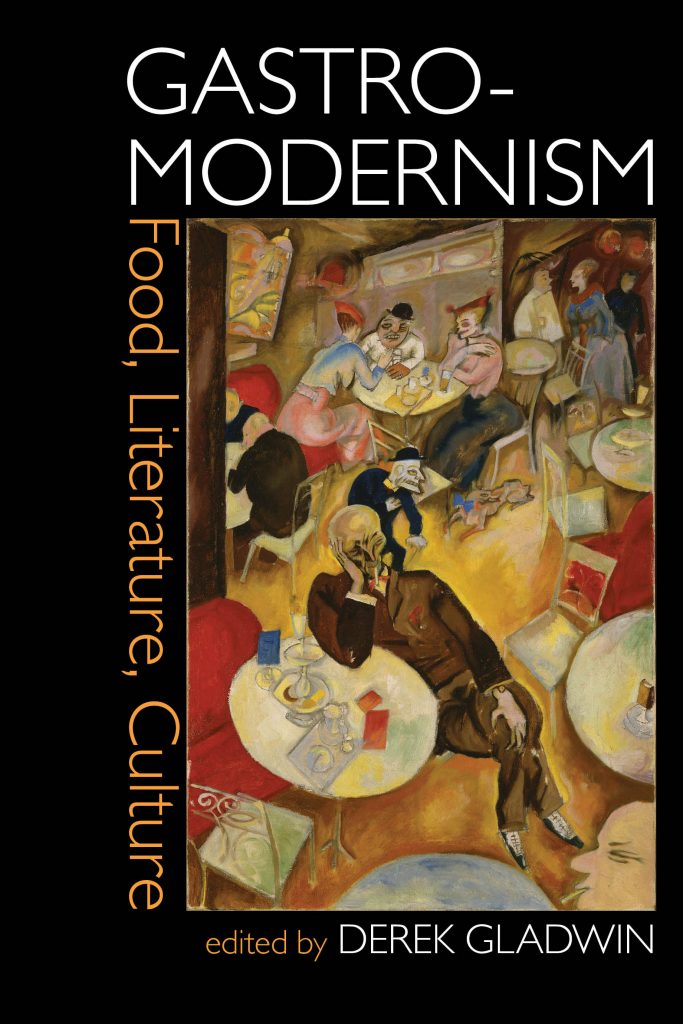Gastro-Modernism
Food, Literature, Culture
Edited by Derek Gladwin
This volume of critical essays provides a long overdue survey of food culture and politics represented in global literary modernisms. The links among what we eat, the production and representation of food, and the resulting global impacts in culture and society are increasing contemporary issues largely dating back to the early twentieth century. Gastronomy signals many social, cultural, and ecological concerns that emerge in the modernist period because of an enlarging social food culture, with expanding food systems in factories and abattoirs to accommodate such growth. At the same time, food supplies were rationed due to wars and economic depression. The response of modernist writers, playwrights, and poets to modernity and urbanization occurs not only through formalistic literary techniques, but also in the overt themes and settings related to food culture. Modernists famously explored public and domestic spaces where food and drink are prepared and served, such as cafés, restaurants, nightclubs, pubs, brasseries, kitchens, or dining rooms. Gastro-Modernism ultimately shows how global literary modernisms engage with the food culture known as gastronomy to express anxieties about modernity as much as to celebrate the excesses modern lifestyles produce.
About the Editor
Derek Gladwin is an Assistant Professor in the Department of Language & Literacy Education at the University of British Columbia. As a writer and teacher, Gladwin explores critical and creative transformations in culture and society through environmental and arts-based education.
TABLE OF CONTENTS
Introducing Le Menu: Consuming Modernist Food Studies | Derek Gladwin
Part 1: Culture and Consumption
1. Sweet Bean Jam and Excrement: Food, Humor, and Gender in Osaki Midori’s Writings | Tomoko Aoyama
2. What Is Eating For?: Food and Function in James Joyce’s Fiction | Gregory Castle
3. A Woolf at the Table: Virginia Woolf and the Domestic Dinner Party | Lauren Rich
Part 2: Decadence and Absence
4. The Social and Cultural Uses of Food Separation | Peter Childs
5. Against Culinary Art: Mina Loy and the Modernist Starving Artist | Alys Moody
6. Cocktails with Noël Coward | Gregory Mackie
7. Late Modernist Rationing: War, Class, Power | Kelly Sullivan
Part 3: Taste and Disgust
8. Objects of Disgust: A Moveable Feast and the Modernist Anti-Vomitive | Michel Delville and Andrew Norris
9. “We were very lonely without those berries”: Gastronomic Colonialism in Canada’s Indian Residential Schools | Clint Burnham
10. From “Squalid Food” to “Proper Cuisine”: Food and Fare in the Work of T. S. Eliot | Jeremy Diaper
Part 4: Appetites and Diets
11. “The Raw and the Cooked”: Food and Modernist Poetry | Lee M. Jenkins
12. Weight-Loss Regimes as Improvisation in Louis Armstrong’s and Duke Ellington’s Life Writing | Vivian Halloran
13. Kitchen Talk: Marguerite Duras’ Experiments with Culinary Matter | Edwige Crucifix
“Modernist food studies is an emerging field, and it is thriving. . . . Derek Gladwin’s excellent introduction to Gastro-Modernism parses many of the issues we face when constructing modernist food studies as a subfield and also acts as a useful guide to the development of food studies more generally.”
—Rebecca Bowler, in Modernism/modernity
“Collections like Gastro-Modernism and others in the latest boom demonstrate the potential for modernist food studies as they sow generative connections and enrich subfields far more effectively than keeping the same canonical texts and authors in their separate silos.”
—Jessica Martell, James Joyce Quarterly
‘Jenkins’s and Diaper’s contributions to Gladwin’s collection reveal another aspect of Eliot’s ecological commentary—within the avenue of food studies and gastrocriticism—even as Gladwin’s collection contributes to a rapidly expanding avenue within modernist studies at large.’
—Christina J. Lambert, The T. S. Eliot Studies Annual

Details
Pages: 288 pages
Published: September 2019
Formats
Hardback
ISBN: 9781942954682
eBook
ISBN: 9781942954699
Subjects
LiteratureModernism






